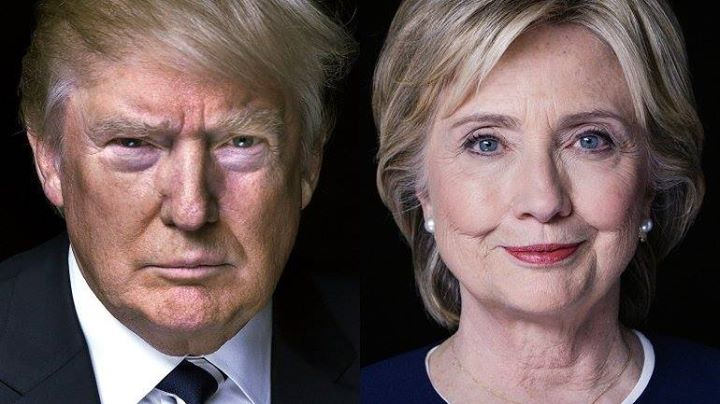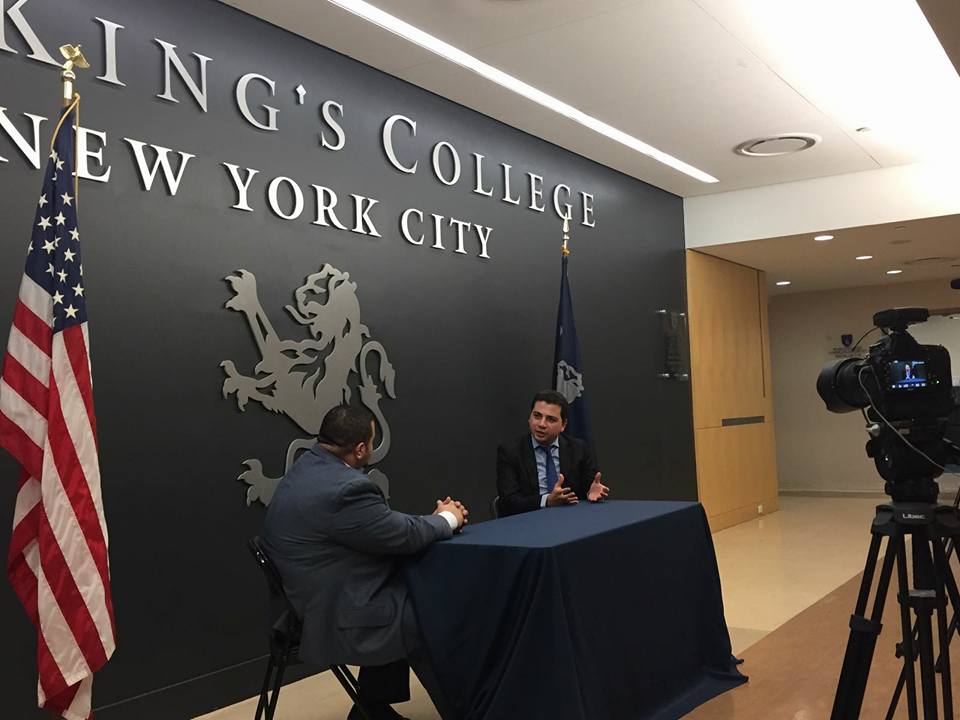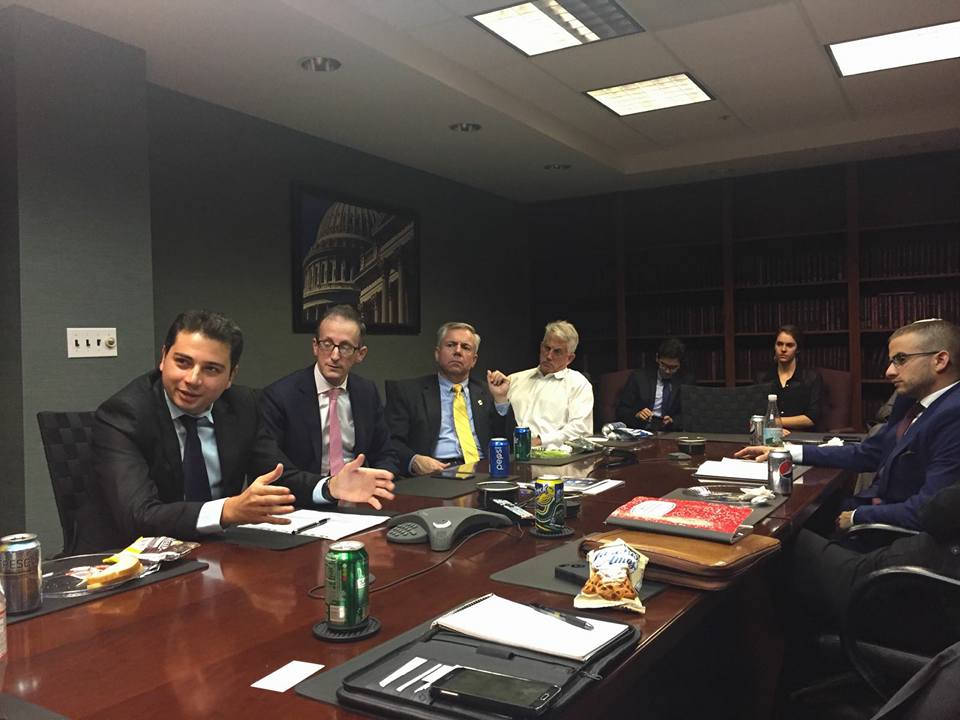Blog

This commentary is written on the flight back to Brussels from Washington DC with just a day to go before the start of the vote on the most controversial American presidential elections ever. Over the past week, I have talked to relevant American experts and European professionals based in the US. I have also exchanged views on the future of Europe and of the Trans-Atlantic relations during a panel debate at the King’s College in New York and during meetings in Washington DC. The following analysis is based on these exchanges and direct observations on the ground.
Hillary seems clearly ahead and set to win the elections after the FBI finally backpedaled on the emails’ affair last night – “just in time” most would say. However, one should not underestimate the hidden (from the polls) vote, ie. the votes of those who do not declare that they are voting for Trump because they do not want to be associated with (some of) the politically incorrect statements that Trump has made, but they still endorse his policy proposals. The fact is that the race has been tighter than most analysts had expected and this is highly relevant given the abysmal distance between the views and the profiles of the two candidates.
Regardless of the outcome of tomorrow’s elections, the American society is split down the middle in a way it probably has not been in the last 40 years. And this is a serious threat to the security and prosperity of the West and the world as a whole, but especially to that of the Europeans.
At the end of the ugliest of the electoral campaigns, the Americans are disenchanted with their domestic politics, and the world with America. Most of the Americans I have met cannot wait to get these elections over with, so that they (and the world) can forget all what has been said throughout it and return to business as usual. However, the experts seem to agree that the election’s day is not the end of it. A process has been triggered by this campaign, a process that will have long term repercussions on the world as a whole.
Both candidates are perceived as weak, albeit for different reasons. They are perceived as unfit for the job (to say the least) by more than half of the Americans. They are hence vulnerable and either of them will pass this vulnerability onto the US and onto the West as a whole. This is not good news for the Europeans, who have relied for the past 70 years on the Americans for their defense and with which they are hoping to build a Trans-Atlantic space of economic prosperity and freedom.
The Americans, for their part, have little knowledge of what the EU is and how it works. No surprise here, as this is something very difficult to grasp even for the Europeans. An European diplomat put it bluntly a couple of years ago, at the peak of the US-EU spying dispute, when the Americans were suspected to have listened to the debates of the working groups of the EU Council: “let them listen, let’s see if they can make any sense of those complex technical debates which we hardly understand ourselves”.
It seems that the Americans find it extremely hard to understand the EU, indeed. The US experts I have talked to are inclined to think that after Brexit the EU will shrink further, both in terms of number of members and prerogatives. They are not sure if this is a good or a bad thing for the US, as Americans disagree among themselves if a strong EU is a better ally or rather a stronger competitor.
For Trump’s supporters any strong international organisation is a potential threat to “making America great again”. This includes the United Nations, but also, possibly, the European Union. Trump has also been very critical of the role of NATO. Firstly, because the Europeans avoid spending more on military capabilities and prefer to invest this money in other sectors, including social services. Trump argues that the US could save part of its contribution to NATO to stimulate internal growth.
Interestingly, while the Republicans in general and even some of Trump’s supporters are critical of Russia, Trump himself has been very restrained on the matter. The “cospirative explanation” is that he enjoys indirect support from the Kremlin and does not mind it. The geo-political explanation is that he sees Russia more like an ally in relation to the Middle East and, notably, in relation to China, this latter being one of Trump’s favorite attack topics. This could explain Trump’s inclination to diminish the role of NATO, who is mainly conceived to contain Russia’s power.
On the trade side, there is very little knowledge and debate about TTIP in the United States. The topic has been rather marginal during the campaign and both candidates have taken a rather negative stance against TTIP, but without being too specific. Some say that this ambiguity is constructive, as it leaves more room for post-elections maneuvering. However, regardless of the outcome, with the country being split in half, the appetite for deep and comprehensive trade deals is likely to be small, at least in the first couple of years.
Interestingly, big political events in the US seem synchronised with equally important ones in the UK and these even seem to be fueling each other to a certain extent. The developments in the two largest Anglo-Saxon democracies in 2016 pose immense challenges both to their citizens, but also to continental Europe. For many decades, the European youth has been inspired by the vision and leadership of the American and British democracies. Now, the debates that we see in these two countries sound more like “3rd world talk”, as one NBC anchorman put it.
In the US, the trust in an otherwise fundamental symbol of the rule of law, the FBI, has been substantially shaken by the allegations from the Democratic side about its perceived inappropriate involvement in the campaign. In the UK, the High Court is under heavy fire and its judges are portrayed by some as enemies of the people for deciding that the British Parliament should have to vote on Brexit.
The scepticism towards the established institutions is all part of the democratic process and it is the way for a political system to evolve and to adapt to the new realities within a society. All big steps in democracy have been made through the challenge of the current laws and institutions, from the abolition of slavery in the US to the overthrow of the totalitarian communist regimes in Eastern Europe. However, strong institutions also guarantee the societal stability and the gradual and peaceful transition towards a new order, if this is indeed the will of the (informed) people. Europeans need to follow these developments with extreme attention, as they will influence substantially the international power game, but also the tone and direction of the political debates within continental Europe.
Most Americans are looking forward towards this Tuesday, as they are tired of this campaign. They hope that once the elections are over, America will come back to business as usual and will regain its prestige in the West and the world. They also hope that they will forget their differences and be “stronger together” again. However, these particular elections are not an endgame. This time the campaign has been much different than before, and many ugly things have been brought to surface. It may even lead to an evolution away from the strictly bipartisan system towards more diversity in the American political spectrum.
There is a lot for Europeans to watch in the US, and, regardless of the outcome, the EU needs to engage much more, much better with the American partners. Importantly, EU will also have to learn how to do so without the British, who have so far acted as the natural bridge. Out of reflex, when trying to understand Europe, the Americans ask the British. This is understandable, as it does not require getting out of one’s (cultural and linguistic) comfort zone. However, this only leads to the Americans having a skewed picture of how Europe really works and what its visions and priorities are. As one US-based European professional put it, this is like asking for advice on how to live with your spouse to someone who has just divorced from the same person.
Trans-Atlantic relations are at a crossroads, and continental Europe and the US will have to commit to working together and listening to each other much more carefully, if they want to stay ahead of the international power game. In order to be effective and sustainable, this dialogue needs to be done not only at high level, but also at parliamentary level, and, notably, at the level of the think tanks and the media. It requires patience, pragmatism and a holistic vision of where the world is going, or where it could go in the absence of enlightened leadership, based on historic precedents and current political trends. It also requires an understanding of why these ties have been forged after WWII to secure the peace, freedom and stability in the Western World. Regardless of who gets to become president-elect this week, the EU needs to step up its efforts to promote informed dialogue at all levels between the two sides of the Atlantic.
——
About the author:
Doru Peter Frantescu is cofounder and director of VoteWatch Europe, the think tank most followed by the Members of the European Parliament. He is also a regular contributor to Politico’s TransAtlantic Caucus, a group of European and American influencers that are consulted regularly about the political and economic trends.
Source: Votewatch Blog – Doru Frantescu’s Posts


Be the first to post a comment.